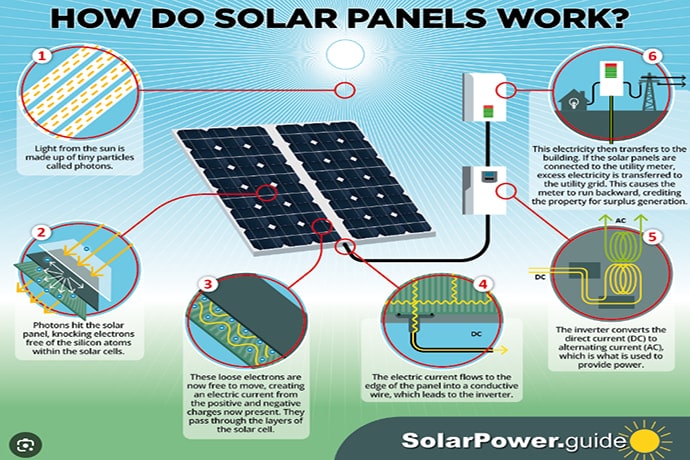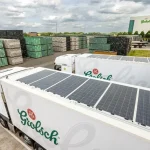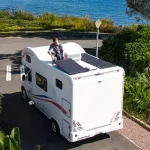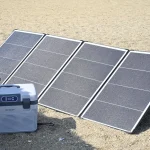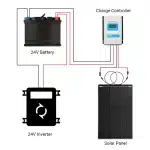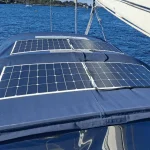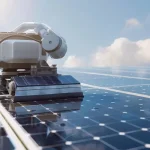In recent years, the popularity of off grid solar power systems has been on the rise. These systems provide a sustainable and reliable source of electricity for homes, cabins, and remote locations where connecting to the grid is either impossible. However, one of the main concerns for those considering off-grid solar power is the cost. In this blog post, we will delve into the various components of off grid solar power systems, factors that affect their cost, how to estimate the cost, and how to choose the right system for your needs. Let’s get started!
Components of an Off Grid Solar Power System
Before we discuss the cost, let’s familiarize ourselves with the key components of an off grid solar power system:
a) Solar Panels: These are the main components that capture sunlight and convert it into electricity. They are made up of numerous solar cells connected in series and parallel to provide the desired voltage and current.
b) Solar Inverter: The solar inverter converts the direct current (DC) produced by the solar panels into alternating current (AC), which is compatible with standard household appliances and can be used to power your home.
c) Charge Controller: This device regulates the flow of electricity from the solar panels to the batteries, ensuring that the batteries are charged safely and efficiently.
d) Batteries: These are used to store the electricity generated by the solar panels for use during periods when the sun is not shining, such as at night or during cloudy days.
e) Installation and Wiring: Proper installation and wiring are crucial for the efficient and safe operation of the off grid solar power system. It is recommended to hire a professional solar installer to ensure the system is set up correctly.
Factors Affecting the Cost of Off Grid Solar Power Systems
Several factors influence the cost of off grid solar power systems. Understanding these factors will help you better estimate the overall cost. Here are the main considerations:
a) System Size and Capacity: The size and capacity of the system directly affect the cost. Larger systems that can generate more electricity will generally cost more than smaller systems.
b) Quality and Efficiency of Components: High-quality components with better efficiency ratings may have a higher upfront cost but can provide better long-term performance and savings.
c) Location and Installation Costs: The location of your property and the complexity of the installation can impact the overall cost. Factors such as accessibility, terrain, and local permitting requirements can influence installation costs.
d) Maintenance: While off grid solar power systems require minimal maintenance, it is important to consider the long-term costs associated with regular maintenance and occasional component replacements.
Estimating the Cost of an Off Grid Solar Power System
To estimate the cost of an off grid solar power system, you can follow these steps:
a) Calculate Your Energy Needs: Determine your daily energy consumption by examining your electricity bills and identifying the appliances and devices you need to power.
b) Compare the Cost of Different Components and Brands: Research and compare the prices of solar panels, inverters, charge controllers, and batteries from different manufacturers. Consider the quality, efficiency, and warranty of the components when making comparisons.
c) Consider Financing Options and Incentives: Explore available financing options such as loans, leases, or power purchase agreements (PPAs). Additionally, look for local and federal incentives, tax credits, or grants that can help offset the cost of installing an off-grid solar power system.
d) Get Quotes from Solar Installers: Contact reputable solar installers in your area to obtain quotes for the installation of the off-grid solar power system. Ensure that the quotes include all the necessary components, installation costs, and any additional services such as maintenance or system monitoring.
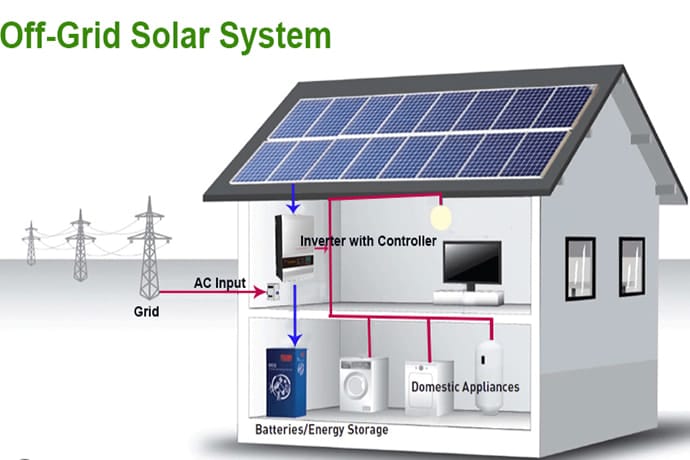
Choosing the right off grid solar power system for your needs requires careful consideration of several factors. Here are some essential steps to guide you through the selection process:
a) Evaluate Your Energy Use and Budget: Assess your energy needs based on your daily consumption and the appliances you intend to power. Determine how much you are willing to invest in an off-grid solar power system, considering both the upfront costs and long-term savings.
b) Consider the Size and Layout of Your Property: Assess the available space on your property for solar panel installation. Consider factors such as shading from trees or buildings, the orientation of the panels, and any structural limitations that may affect the system’s efficiency.
c) Compare Different System Configurations and Technologies: Research various system configurations, such as stand-alone systems or hybrid systems with backup generators. Explore different solar technologies, such as monocrystalline, polycrystalline, or thin-film solar panels, and evaluate their performance, durability, and cost-effectiveness.
d) Seek Advice from Experts and Experienced Off-Grid Users: Consult with solar energy professionals or seek advice from experienced individuals who have already installed off-grid solar power systems. They can provide valuable insights, share their experiences, and offer recommendations based on your specific requirements.
Once you have considered these factors, you will be well-equipped to make an informed decision about the best off grid solar power system for your needs.
Some frequently asked questions about off grid solar power systems
Can I expand my off grid solar power system in the future?
Yes, off-grid solar power systems are scalable, allowing you to expand the system over time to meet your changing energy needs. It is important to ensure that the initial system design accommodates future expansions.
How long do off grid solar power systems typically last?
With proper maintenance and care, off-grid solar power systems can last for 25 to 30 years or more. Regular monitoring, cleaning of solar panels, and periodic battery replacements, if required, can help extend the system’s lifespan.
Do I need to store excess energy generated by my off-grid solar power system?
Storing excess energy in batteries is a common practice in off-grid solar power systems. It allows you to have access to electricity during times when the solar panels are not generating enough power, such as at night or during cloudy days.
What happens if there is a prolonged period of low sunlight?
During extended periods of low sunlight, such as during winter months or heavy cloud cover, it may be necessary to have alternative backup power sources, such as a backup generator or access to a grid connection, if available in your area.
How do I maintain an off grid solar power system?
Regular maintenance of an off-grid solar power system includes cleaning the solar panels, inspecting and tightening connections, monitoring battery health, and ensuring that all components are functioning properly. It is recommended to follow the manufacturer’s guidelines for maintenance and consult with a professional if needed.
Article from: https://www.sungoldsolar.com/
For more information click on: Sungold


